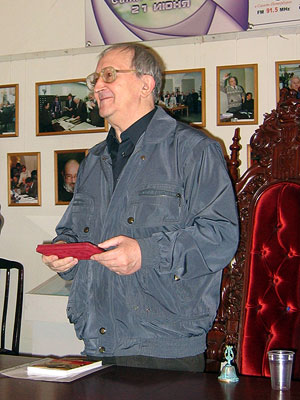This month, Locus Magazine are hosting an ‘all-centuries’ poll for the best SF/F/H novels and short fiction of the 20th and 21st centuries. It’s the first such poll since 1998 and therefore the first chance readers will have to reveal their thoughts on which works of the current century might be destined to emerge as future classics.
This is fascinating of course, especially since 1) the poll is open to everyone, not just Locus subscribers, and 2) the organizers have been sensible enough to respond to suggestions that this year’s ballot NOT be seeded with possible options (as has happened previously) and thus, theoretically at least, offering us a level playing field.
Is a level playing field truly possible, though? If you click on the link above, as well as the ballot form itself you’ll find four extensive and informative ‘suggestions lists’, one each for novels and short fiction for both the 20th and 21st centuries. It is clear that the poll’s organisers have been rigorously fair and thorough in compiling these lists (full details of the selection procedure can be found at the head of the 20th Century Novels list). Some questions, however, remain.
In the run-up to this year’s Fantasycon, the BFS ran a poll to determine the nation’s favourite ghost story, and because I’d been invited to take part in the panel discussion prior to the announcement of the winner I did a fair amount of research before the event. I started by rereading a number of my own favourite ghost stories. Then I checked out the ToCs of some landmark anthologies to see which stories featured and what I thought of them.
What I discovered was that although these anthologies featured many fine stories, they were also surprisingly conservative in their selections. The same stories tended to crop up again and again at ten-year intervals. It was as though editors had found themselves stymied, bound to choose certain works simply because they were already considered to be unassailable in their position as ‘classics’ rather than because they felt genuinely inspired to include them. So orthodoxy is born: stale, inflexible, and unthinking. A by-product of orthodoxy is the risk of losing sight of those works that didn’t fit the prevailing fashions of the time, those works that were odder, more uncomfortable, less easily categorized. Less orthodox, in other words. Awards, anthologies and works of criticism present an interesting picture certainly, but (as has been highlighted by recent debate) it can only ever be a partial one.
The result of the ghost story poll came as no surprise to anyone, and for me at least the winner served to epitomise the problems of orthodoxy. M. R. James’s ‘Oh! Whistle and I’ll Come to You, My Lad’ still has its thrilling moments and James’s influence on later writers is undeniable. Yet ‘Oh! Whistle’ is also very much a product of its time and place. It is a story of surface affect but precious little psychological depth. Its convoluted mode of address makes it feel irredeemably dated now – it’s retrospective, not revolutionary, more of a comfort blanket than a tale of terror. I’m not suggesting that we should stop loving M. R. James (or Heinlein, or Clarke) – just that we should consider them honestly before including them in our personal canon, that we should not take the assumed importance of any writer for granted. Historically significant these ‘classics’ may be, but how good are they now, really? Does the writing still speak to us in a language that is actively inspiring, or is it time for a changing of the guard?
Polls like this current Locus poll give each individual voter the chance to be his or her own editor, compiling a personal ‘century’s best’. Which is a great thing – just so long as we remain aware of our own biases as we make our selections. What are our own personal criteria when we sit down to fill out our ballot forms? The most obvious point to underline is that no one has read everything – no matter how much we read or how widely, we all have built-in blindspots, gaps, hobby horses. Given that this is so, is it more worthwhile to try and make an ‘objective’ listing – those works we genuinely consider to be groundbreaking, paradigm-shifting, historically important, regardless of how much we personally actually like them – or would selecting works on such grounds prove so subjective and in its own way dishonest that it’s better simply to go for works we love, regardless of how they sit ideologically within the genre or how clever or well thought of they are. Should nostalgia play a part? What about books that completely changed our outlook when we were sixteen, but (being brutally honest) we’re no longer that keen on?
For my own ballot, I allowed my personal response – my gut feeling, in other words – to determine my choices as much as possible. I studied the suggestions lists carefully, but my final votes included a good number of works that are not on those lists. I voted only for works that I have read in their entirety. I also laid down an additional rule for myself in only voting for one work per author per category – it just seemed more interesting that way. I’ve listed my voting choices in a pdf, which you can view here. I hope to see more people posting their ballots online as the deadline for voting (November 30th) draws closer. The bigger the turnout, the more meaningful the result. The more dissenting the opinion, the better.
